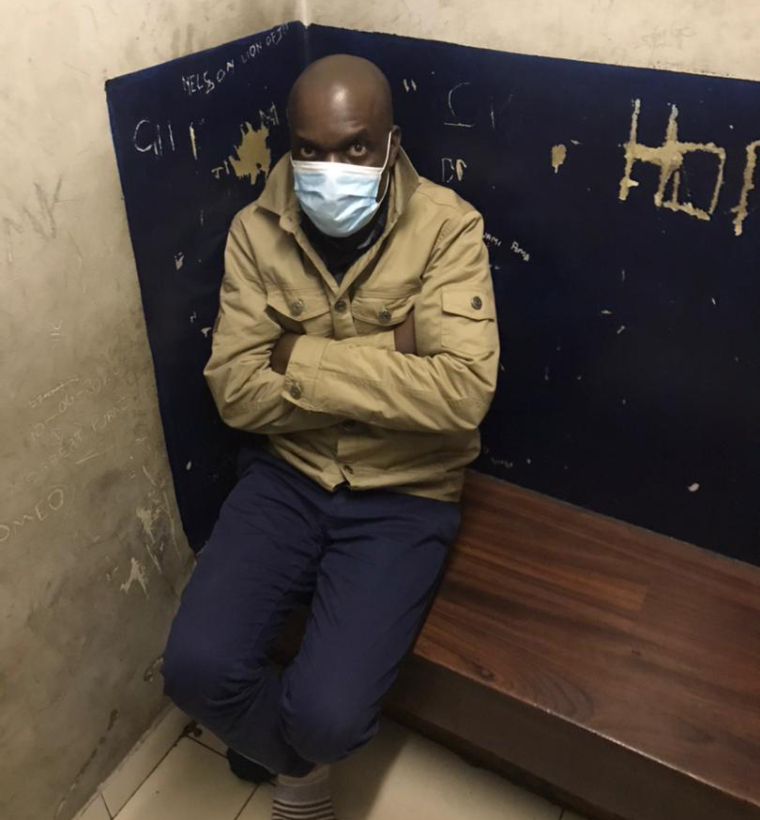Rutendo Jiri
While the United States Embassy in Harare has expressed its “disappointment” over Bulawayo Magistrate, Rachel Mukanga’s denial of bail for Jeffrey Moyo, The New York Times Zimbabwean Correspondent and Thabang Manhika, Zimbabwe Media Commission (ZMC) official recently, but the move is justified.
The duo who were arrested on May 26, 2021 in Harare and charged for violating Section 36 of the Immigration Act, wherein they misrepresented to immigration officials about the accreditation status of The New York Times reporters, Christina Goldbaum and Joao Silva, should have known that misinforming authorities here is wrong.
It remains applauded for Magistrate Rukanga who presided over the case after noticing the fact that the duo’s case is of national security interest.
The presence of foreign illegal journalists on the Zimbabwean soil should be a reason for major concern just as it would be deemed a matter of national security interest or even border on claims of terrorism had these journalists been found on American soil. The Americans should be the ones to keep quiet as they have denied Julian Assange freedom for more than half a decade years now after he unearthed the American security communication channels which became to be known as WikiLeaks. So if the Americans had denied Assange freedom for quite a long time just because he trampled upon their security communication channels, so Zimbabwe is also bound to do the same to protect her secret information through incarcerating those found stealing the same.
The motive of those foreign journalists was not established before they were humiliated by deportation because they had been conducting clandestine activities in Bulawayo.
The timing of their visit in Bulawayo could help expose their mission because it coincided with the on-going calls by Ibetshu Lika Zulu and Mthwakazi Republic party who have roped in regime change Non-Governmental Organizations (NGOs) and Civil Society Organisations (CSOs) to amplify calls for cessation.
It is believed that they were going to produce adverse reports about the Government to support calls by some Bulawayo based NGOs and CSOs that the Matabeleland region is economically marginalized. These fabrications of events would then derail the gains of engagement and re-engagement so far achieved by the Second Republic.
Characteristically of the U.S Embassy in Harare, they issued a statement on their Twitter handle, expressing their “disappointment” over bail denial for the duo forgetting that back home they have influenced the courts to incarcerate Julian Assange as the extraction court processes continue.
“We are disappointed that freelance journalists’ @moyojeffrey, who has reported for @nytimes, and Thabang Manhika, an employee of the @Zim_Media_Com did not receive bail. A free media forms the foundation of democracy,” posted the U.S Embassy. One would wonder why the Americans get disappointed over the denial of bail for both Jeffrey Moyo and Thabang Manhika when they are also failing to make Assange move freely. These are double standards at play indeed.
It is not surprising that in foreign news media, Moyo is portrayed as a professional journalist whose integrity cannot be questioned because he works for The New York Times, Canada’s Globe and Mail newspaper and Norway’s Bistandsaktuelt!. However this should not make Jeffrey Moyo immune to arrest and incarceration if he is found on the wrong side of the law.
People should know that a Zimbabwean journalist who writes for an international news media and enjoys favour in the eyes of U.S. Embassy officials does not mean they should be above our country’s laws. It should be made clear that any journalist working in the country should observe the laws of Zimbabwe.
The U.S. Embassy in Harare is quick to use isolated incidences such as the arrest of Moyo and Manhika for violating the country’s immigration laws to amplify calls for alleged human rights violations by authorities, but are historically silent over the continued human rights violations on the people of Zimbabwe by the British and American governments who have maintained illegal sanctions for more than twenty years now. If the US embassy in Harare is so caring about Zimbabwean citizens it should advise its government back home to remove those punitive sanctions which are making people suffer daily here.
It is refreshing to note that some sections of Zimbabwean netizens took to U.S. Embassy official twitter handle to register their disappointment following the tweet by the embassy which exhibited American’s continued meddling in Zimbabwe’s domestic affairs.
“A whole embassy is disappointed over internal procedures in a sovereign land. Why are u not disappointed that they are many suffering because of your evil sanctions,” tweeted @Dvavakwa2.
“The law must take its course remember Journalist Jeffrey Moyo is being charged with violating immigration laws after allegedly presenting false information to help his peers from the U.S. newspaper get permission to report in Zimbabwe. So the Courts must decide,” tweeted @Chiwenda.
Zimbabweans are now awake to Western sponsored regime change tactics such as the use of journalists with international links such as Jeffrey Moyo and Hopewell Chin’ono who use their links with the West to produce adverse reports about the country.
In 2023, the country goes into elections and will likely see an influx in the number of foreign journalists wanting to come and report on elections with some coming to report negatively about the situation in Zimbabwe.
This is one of the reasons why the country should have its Patriotic Bill in place before the 2023 elections to safeguard the country against Western sponsored regime change antics.




